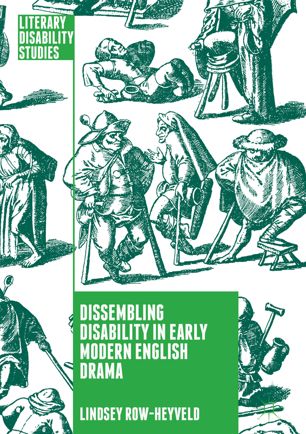

Most ebook files are in PDF format, so you can easily read them using various software such as Foxit Reader or directly on the Google Chrome browser.
Some ebook files are released by publishers in other formats such as .awz, .mobi, .epub, .fb2, etc. You may need to install specific software to read these formats on mobile/PC, such as Calibre.
Please read the tutorial at this link: https://ebookbell.com/faq
We offer FREE conversion to the popular formats you request; however, this may take some time. Therefore, right after payment, please email us, and we will try to provide the service as quickly as possible.
For some exceptional file formats or broken links (if any), please refrain from opening any disputes. Instead, email us first, and we will try to assist within a maximum of 6 hours.
EbookBell Team

4.3
88 reviewsWhy do able-bodied characters fake disability in 40 early modern English plays? This book uncovers a previously unexamined theatrical tradition and explores the way counterfeit disability captivated the Renaissance stage. Through detailed case studies of both lesser-known and canonical plays (by Shakespeare, Jonson, Marston, and others), Lindsey Row-Heyveld demonstrates why counterfeit disability proved so useful to early modern playwrights. Changing approaches to almsgiving in the English Reformation led to increasing concerns about feigned disability. The theater capitalized on those concerns, using the counterfeit-disability tradition to explore issues of charity, epistemology, and spectatorship. By illuminating this neglected tradition, this book fills an important gap in both disability history and literary studies, and explores how fears of counterfeit disability created a feedback loop of performance and suspicion. The result is the still-pervasive insistence that even genuinely disabled people must perform in order to, paradoxically, prove the authenticity of their impairments.